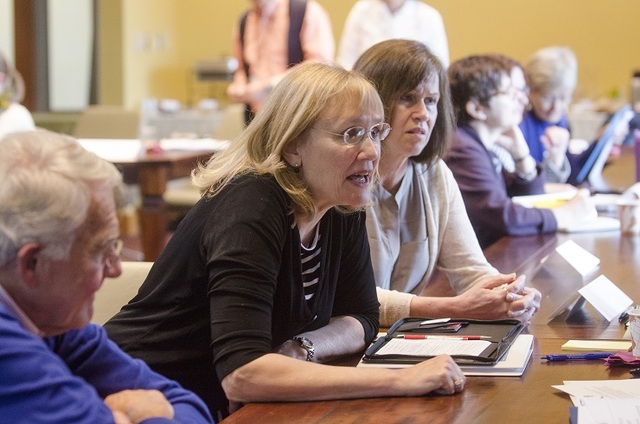Academics Converge on University of Colorado Boulder Campus to Fix Business Ethics Education in Business Schools
July 01, 2015 (PRLEAP.COM) Education News
July 1, 2015 - The Curriculum Think Tank (CTT) held its annual meeting at the Leeds School of Business at the University of Colorado Boulder in May. Business school leaders from across the nation met to debate best practices in curriculum design and determine best approaches for teaching business ethics and corporate social responsibility within b-schools. "A strong ethics education can help counteract a narrowing worldview that often accompanies a student's progression through business school," said a 2013 Wall Street Journal article about the CTT. Leeds School of Business Dean, David Ikenberry further pointed out that stand-alone ethics courses are a start, but they "compartmentalize" the issue for students, "as if ethical questions aren't applicable to all business disciplines."
The Leeds School's Center for Education on Social Responsibility (CESR) hosted the event and helped guide discussions as meeting participants explored topics that included:
CTT participants agreed that ethics cases presented in the classroom should be "realistic," with multiple stakeholders and morally relevant facts. Ethics cases for study should involve a conflict of values and must challenge students to evaluate options. And, they must reference consequences, values and character or corporate culture.
To further the discussion, CTT invited CESR students, alumni and junior board members. They contributed to the conversation by offering their perspectives on the value of discovery-based learning and what they felt are the necessary elements for an effective ethics case.
On the topic of selecting the best speakers, CTT participants concluded that there are two important factors. Speakers must have sufficient prominence in business to arouse curiosity and interest. Additionally, CTT participants agreed that speakers who have a compelling story to tell from their own experience make the best classroom guests.
To measure the impact and effectiveness of these programs, CTT participants agreed to build on the work of Drs. Douglas May and Catherine Schwoerer – CTT members who have measured the impact of ethics education in b-schools in relation to "moral efficacy," "moral courage," and "moral identity." The group agreed to establish an alumni survey and collect data from students who are graduating from one of the participating b-schools. They will repeat the survey 6-10 months later. The CTT will measure the results from these surveys along with comparison groups from other programs.
About Curriculum Think Tank
In 2012, CESR, under the leadership of the Center's founding Executive Director Dr. Donna Sockell, founded the Curriculum Think Tank (CTT). CTT brings together academics from business schools across the nation to discuss integrating business ethics and corporate social responsibility into business school curriculums.
This year, Dr. Sockell returned to cohost the meeting with CESR Executive Director Mark Meaney, welcoming a new international contingent of members including the European School of Management and Technology, Spain's IESE Center for Business in Society, and EGADE Business School in Mexico and Latin America. Other participating schools included Babson College, the University of Pittsburgh, Michigan State University, Dartmouth College, Trinity University, and the University of Arizona, to name a few.
About CESR
Founded in 2007, the Center for Education on Social Responsibility (CESR) advances the Leeds School's commitment to preparing future leaders to confront social, environmental, economic and ethical challenges faced by modern business.
CESR infuses values exploration throughout the required curriculum at the undergraduate and MBA levels, and offers cutting-edge electives and social responsibility classes for further ethical development. CESR's faculty deliver courses that challenge students to develop critical ethical inquiry and evaluate business practices along environmental, social and ethical dimensions.
Contact Information
Mark Meaney, Executive Director
Center for Education on Social Responsibility (CESR)
303.492.3937
Contact Us
Mark Meaney, Executive Director
Center for Education on Social Responsibility (CESR)
303.492.3937
Contact Us
